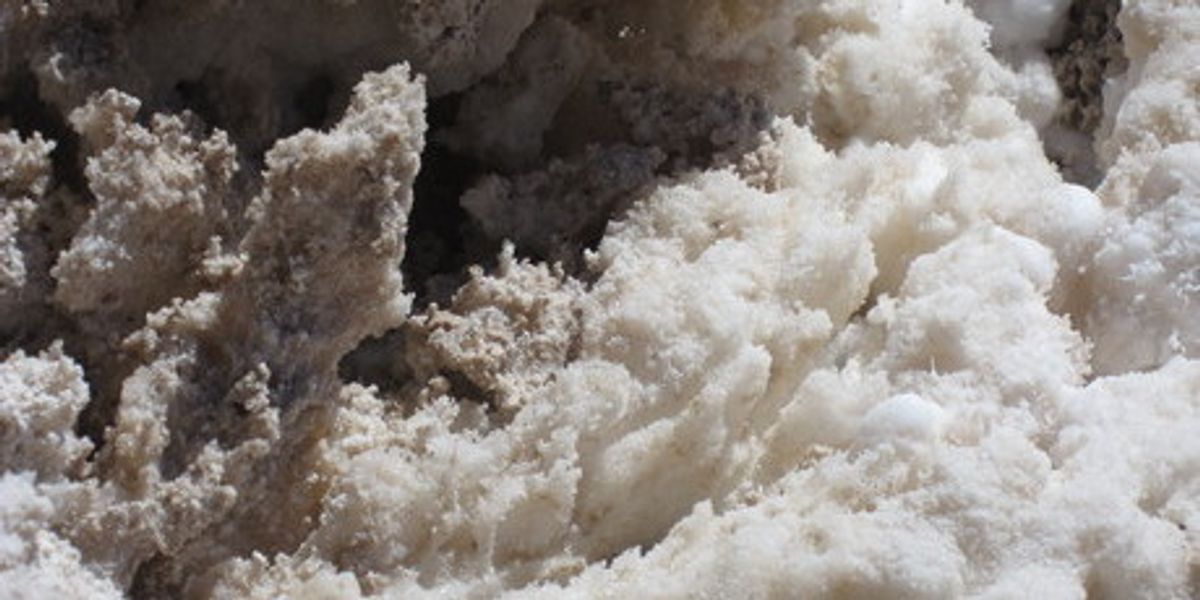Perhaps because there's a certain romance in imagining an impoverished land-locked country with an idealistic left-wing government as having a lock on what the world may soon need most, Bolivia not infrequently has been described as the future Saudi Arabia of lithium--the element needed to power most handheld and laptop devices today, and which may be powering a large fraction of our motor vehicles in the near future.
So often have I heard this notion of Bolivia's being dominant in lithium, I was startled to hear during a recent visit to the salt flats (above) of Chile's Atacama desert that it is actually Chile, not Bolivia, that leads in lithium exports. The numbers are indeed startling: According to a Wikipedia entry, Chile was the leading 2009 producer, extracting 7,400 tonnes, more than a third of the world total. Australia came second, with 4,400 tonnes and Argentina third with 2,200 tonnes. Bolivia was not significant enough to be listed at all.
I am of course not the first by any means to debunk the notion of Bolivia's being a Saudi Arabia of lithium any time soon. A year and a half ago a market research firm posted an article pointing out that "Chile provides 61 percent of lithium exports to the United States, with Argentina . . . 36 percent." The Wikipedia entry says Chile holds about 7.5 million tonnes of the world's 9.9 million tonnes of lithium reserves.
To be sure, that does not square with estimates from the U.S. Geological Services: According to USGS, among the three countries the so-called lithium triangle straddles--Bolivia, Chile, and Argentina--Bolivia does in fact have the largest reserves. The USGS says Chile's come to about 3 million tonnes and Argentina’s 400 thousand tonnes, while Bolivia's are projected at 5.4 million tonnes. So, if the USGS numbers are preferred to Wikepedia's unsourced statistics--and I certainly prefer them!--that means Bolivia may indeed some day be a dominant supplier. But that day may be quite a long way off. For one thing, to be a big world exporter, it needs better access to ocean transport, which will depend in large part on Chile's cooperation.
What brings all this to mind is a flyer I received in the mail at home this week, with a striking photograph of what appear to be mounds of lithium in the Atacama desert. The headline says, "A global hunt is underway for the next oil"--the equivalent of 148 billion barrels of oil, worth $11.5 trillion dollars in revenues. The brochure turned out to be a plug for a specific company that claims to own a large fraction of the world's reserves, made in the name of a market analysis company.
The moral? With a much trumpeted revolution in electric and hybrid vehicles possibly in the offing, lithium is getting a lot of hype. Be careful about all claims made. Don't suppose, for example, that just because this is a blog post about the world lithium market, that my photograph above is of lithium. As far as I know it's just table salt.



